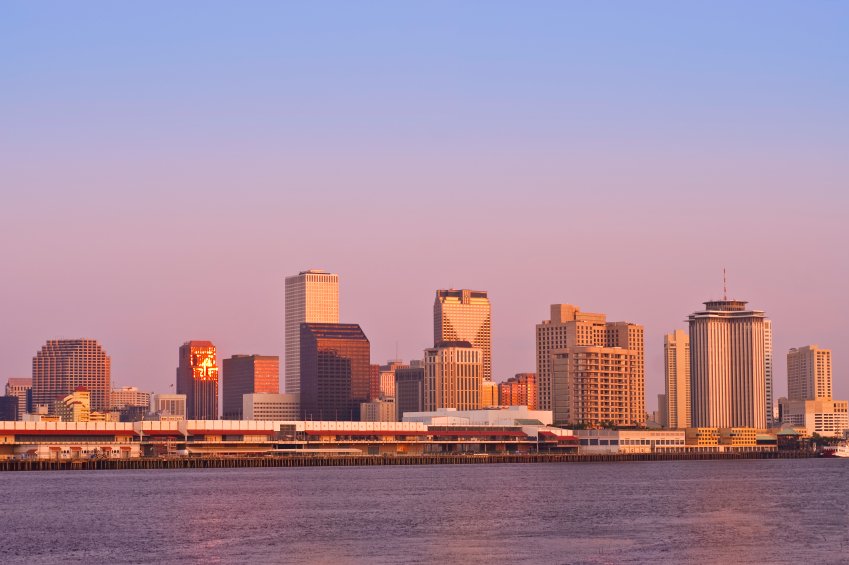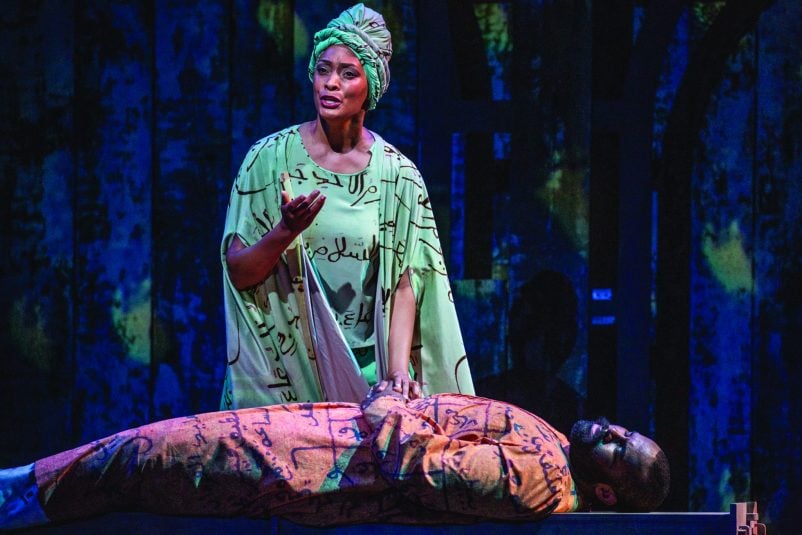 By Paige Bowers
By Paige Bowers
Entrepreneurs are the catalyst for community change. Find out how one New Orleans organization is turning the Crescent City into a hotbed for bright minds.
1. Native Sons Can Be the Best Leaders
In the mid-1980s, New Orleans was in a downward spiral, in part because of its longstanding political corruption and failing education system, but also because the once-thriving Louisiana energy industry tanked as soon as oil prices fell to $10 a barrel. Statewide, one out of every eight people was unemployed. Economic hardship drove residents toward opportunities in more prosperous places such as Atlanta, Dallas, Houston, New York, and Boston.
The exodus was most prevalent among 23-to-35-year-olds, the very demographic that could have provided the fresh ideas and innovative businesses essential for growing the state’s economy and addressing its pressing social issues. More than 41,000 young Louisianans left for greener career pastures between 1990 and 2000. New Orleanian Tim Williamson was among them.
Williamson worked as an investment banker, and then in television production and interactive media in various East Coast cities for about a decade, before returning to the Crescent City to launch a website for local news, weather, sports and entertainment.
“I looked around and saw that not only were things in decline, but people had given up in some way,” he says. “The education system was about the worst in the country and there was rampant crime and political corruption. The worst part about it was the general attitude that all of this was okay.”
2. Cocktail Napkins Still Make For Good Brainstorming
Discouraged, Williamson and four other dot-com entrepreneurs—all of whom had left New Orleans but returned—met at a bar to discuss the city’s problems over drinks.
The problem, as they saw it, was with the city’s leadership; start from the top and you could naturally begin to improve the education, crime and corruption issues. The solution, they agreed, was to find a new generation of entrepreneurial pioneers who were open to new ideas that could bring the city forward.
They scribbled all these thoughts on the back of, yes, a cocktail napkin.
Each member of the quintet contributed $2,000 of his own money to run a business plan contest. As word of the contest spread, various local businesses offered in-kind support, resulting in a prize totaling $125,000. The group chose as its winner PetroDesigns, a company that provides online engineering designs to the oil and gas industry. But PetroDesigns needed $10 million in funding, and Williamson said they were only able to help the company secure an additional $50,000 in angel investments.

3. Sometimes NOT Getting Funding Is the Best Thing That Can Happen
 “It became clear to us that there needed to be a network here that could bring together businesses, universities and government in a way that made New Orleans a world-class city for entrepreneurship, a place that identified and supported entrepreneurs and kept them here,” Williamson says. “So we wrote a business plan ourselves and made the case that New Orleans could be such a world-class community because it was already creative and already had the mind power. It just needed an entity that could support entrepreneurship.”
“It became clear to us that there needed to be a network here that could bring together businesses, universities and government in a way that made New Orleans a world-class city for entrepreneurship, a place that identified and supported entrepreneurs and kept them here,” Williamson says. “So we wrote a business plan ourselves and made the case that New Orleans could be such a world-class community because it was already creative and already had the mind power. It just needed an entity that could support entrepreneurship.”
The result: The Idea Village, an independent 501(c)(3) nonprofit that emerged in 2000 from the scribbles on Williamson’s two-year-old cocktail napkin. The organization offers area entrepreneurs free workshops and roundtable discussions; mentoring from seasoned business professionals; networking; and access to capital to help spur the local economy and create a hometown hub for entrepreneurs.
Though finding funding within the community remained challenging, the folks at Idea Village persevered—which they believe made them stronger.
“Who funds independent groups like us? No one,” Williamson says. “But that might have been the best thing that happened to us, because we self-funded up front and that made us scrappier and more effective. Then, we raised $500,000 from the private community, with people saying to us, ‘If you can bring my daughter home, then this will be worth it.’ People were tired of their children leaving New Orleans.”
4. When Tragedy Strikes, Rise to the Occasion
In July 2003, the City of New Orleans gave Idea Village an additional $500,000 in funding. A year later, Tulane University and the University of New Orleans became the group’s strategic partners. But in 2005 Hurricane Katrina devastated the city, challenging all the progress and optimism that had begun.
“[Katrina] gave us the opportunity to validate why we existed,” Williamson says. “It gave us the opportunity to prove that entrepreneurs were the catalyst for community change. Entrepreneurs were the first ones back to the city, because you had to have businesses open before people could come back. The day after Katrina, everyone became an entrepreneur in a way. Everything had to restart with limited resources and lots of risk. Everyone had to hustle again and that transcended business and government.”
Indeed, eight years after Katrina, a Greater New Orleans Community Data Center report found that entrepreneurial activity in New Orleans was 53 percent above the national average.
5. Silicon Bayou? If You Build It, They Will Come
Idea Village has hit its stride. Between 2009 and 2013, the organization gave 131 startup businesses $2.3 million in seed capital. Today, 80 percent of those companies are still in business, and they have created more than 1,000 jobs throughout the city. Those innovative companies that now call New Orleans home include Naked Pizza, which creates pizzas from all-natural meats; Kickboard, which designs classroom management software for teachers; the Occasional Wife, an organizing and errands-running service; and TurboSquid, an online source of 3-D imagery.
Today, Idea Village provides consulting services and mentoring to more than 3,000 entrepreneurs throughout the city. It offers IdeaSessions, a 90-minute strategy meeting with seasoned entrepreneurs that gives startup businesses actionable next steps for their business. It has also implemented Ideacorps, which allows MBA students from across the nation to provide area startups with 300 hours of hands-on support and advice. Another innovation was Ideaxcelerator, an 11-week program that gives entrepreneurs access to mentorship and possible seed funding for their ideas. Outside of the hands-on support Idea Village offers local startups, it also encourages those businesses to devise solutions to pressing problems in local education or water management. In recent years, national magazines such as Forbes have called the city the “Biggest Brain Magnet” and one of the best cities in the nation for jobs. Inc. hailed New Orleans as the “Coolest Startup City in America.”
“We’re not trying to be the next New York or Silicon Valley,” Williamson says. “We’re doing something that is unique to us, and the rhythms and rituals of how we interact. It’s a lot like what happens during Mardi Gras; everyone has a role to play in its success, no matter where they are in the community.”
This article was originally published by NationSwell, a website dedicated to sharing the stories of innovative Americans who are working to effect social change and move the country forward. More from NationSwell:
Can a Quieter New Orleans Still Be Fun? City Officials Are Betting Yes
The Big Easy’s Big Literacy Challenge
Finish This Sentence and Change Your Town Forever
Introducing the Nonprofit Whose Mission Is to Help High School Dropouts and the Homeless















